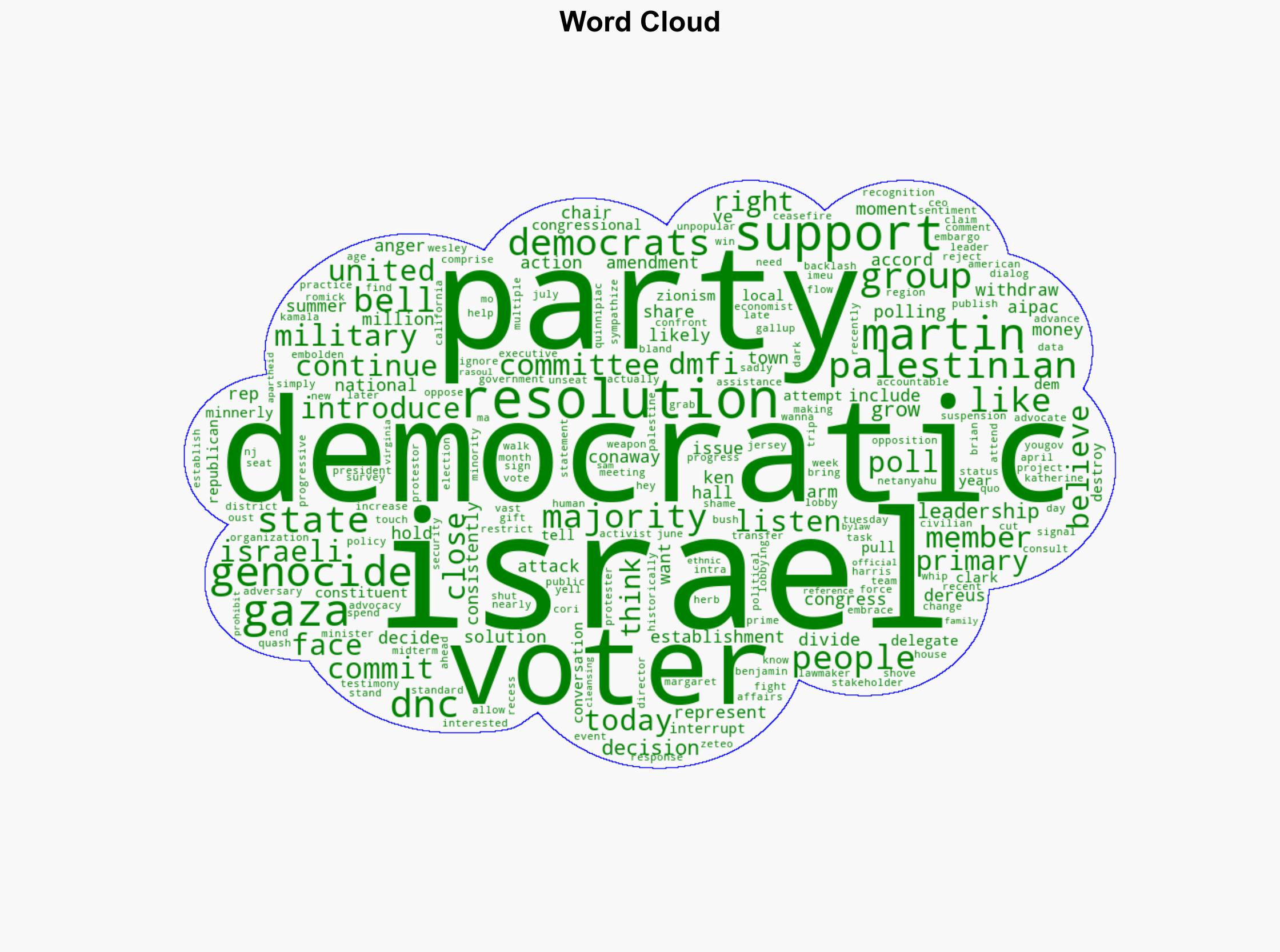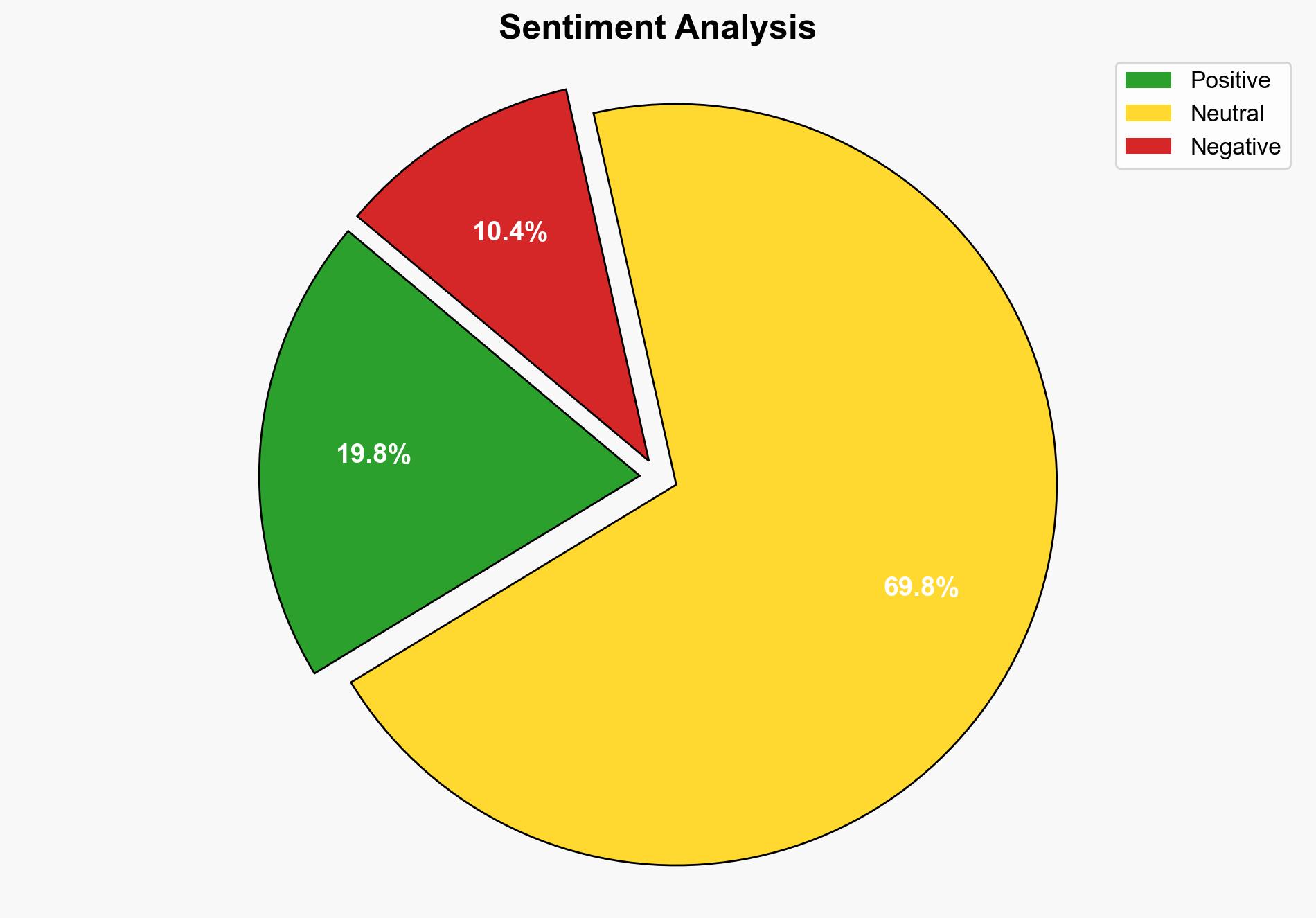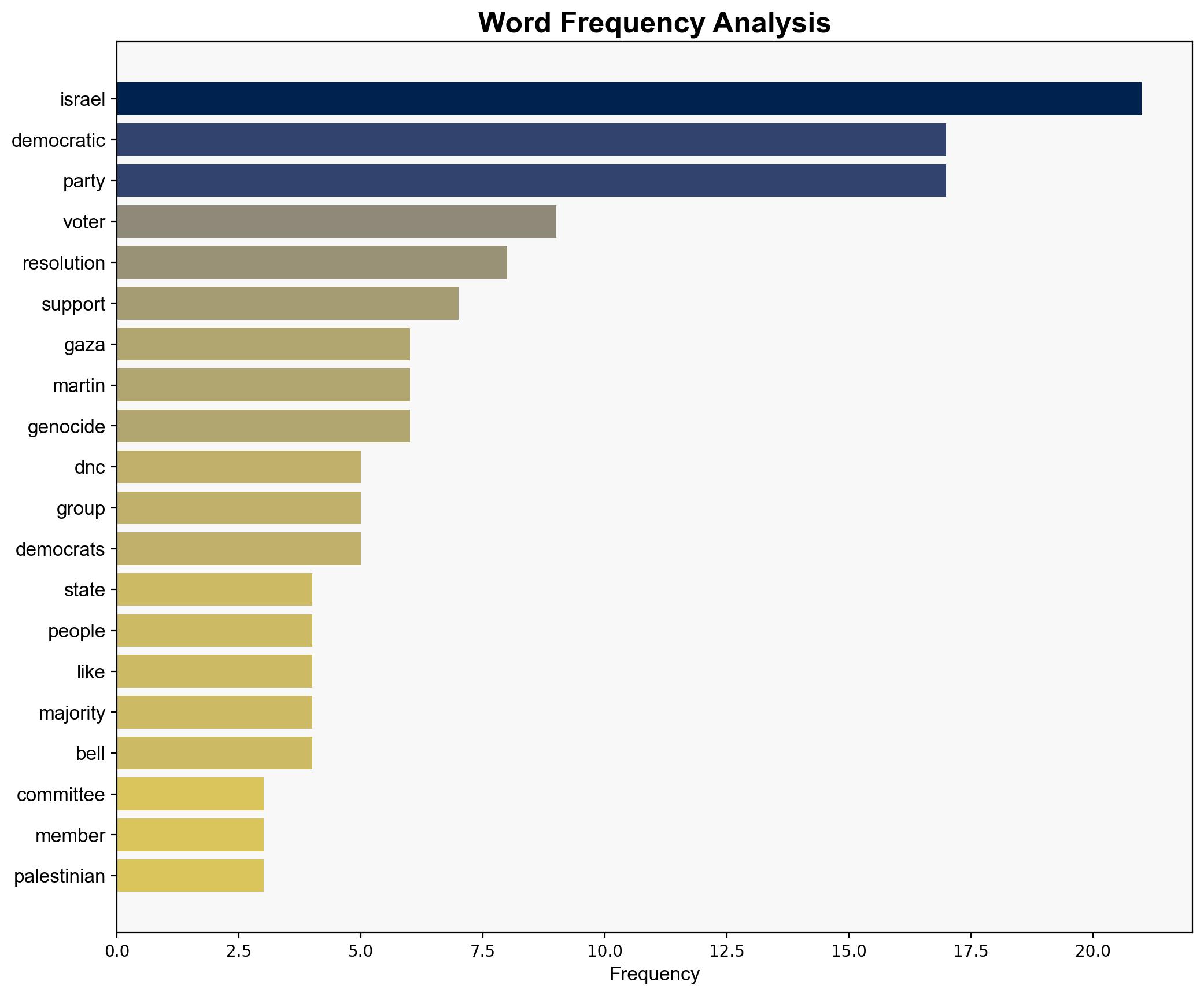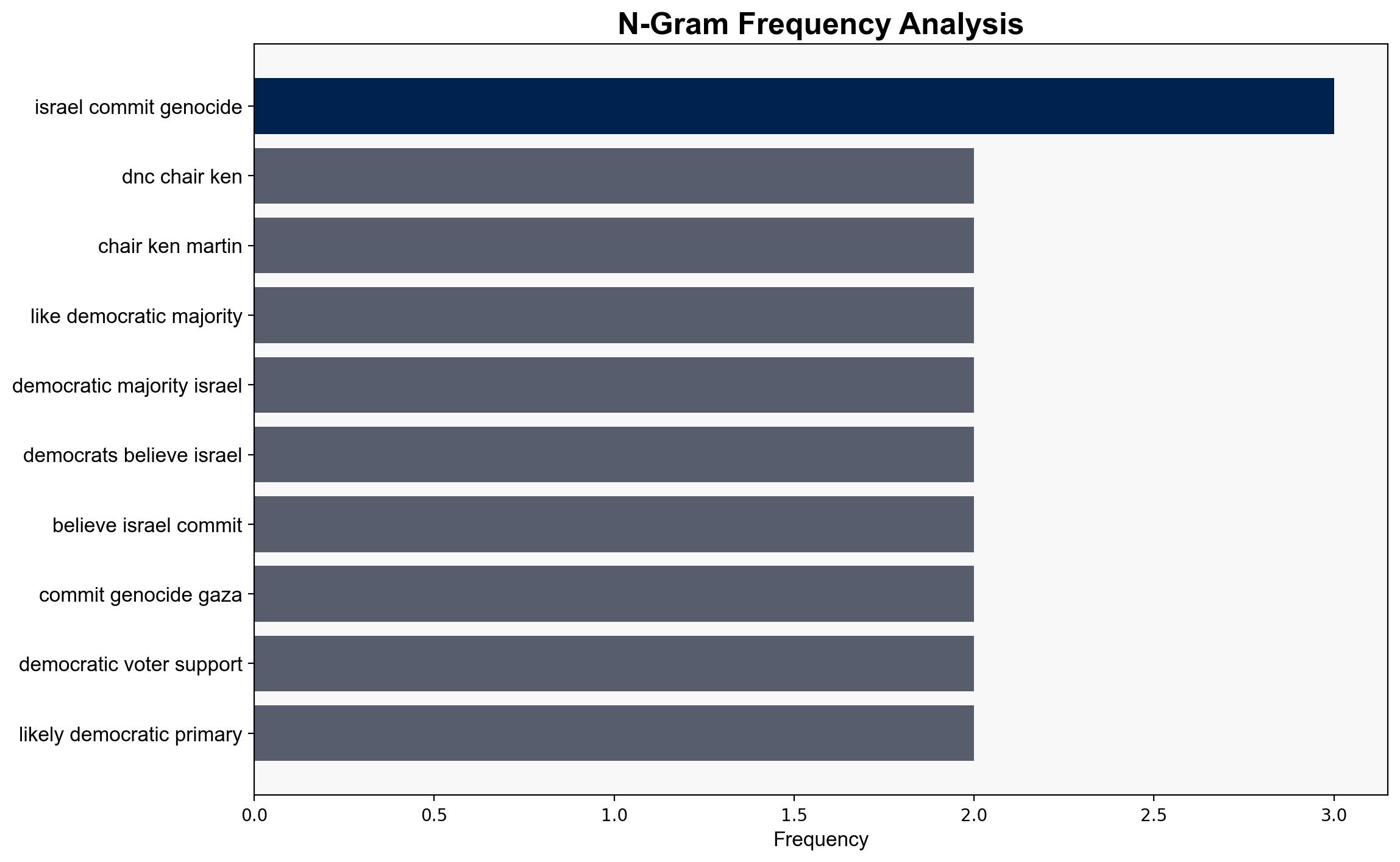In defiance of voter base DNC rejects resolution calling for Israel arms embargo – Mondoweiss
Published on: 2025-08-26
Intelligence Report: In defiance of voter base DNC rejects resolution calling for Israel arms embargo – Mondoweiss
1. BLUF (Bottom Line Up Front)
The Democratic National Committee’s (DNC) decision to reject a resolution calling for an arms embargo on Israel, despite apparent voter base support, suggests internal party divisions and external lobbying influence. The most supported hypothesis is that strategic political calculations and lobbying pressures outweigh grassroots voter preferences. Confidence level: Moderate. Recommended action: Monitor intra-party dynamics and voter sentiment shifts, and assess potential impacts on upcoming elections.
2. Competing Hypotheses
1. **Hypothesis A**: The DNC’s rejection of the resolution is primarily driven by strategic political calculations to maintain party unity and avoid alienating influential pro-Israel lobbying groups, such as DMFI, particularly ahead of midterm elections.
2. **Hypothesis B**: The decision reflects a genuine belief among DNC leadership that maintaining the status quo in U.S.-Israel relations is in the best interest of national security and international stability, despite voter base opposition.
Using ACH 2.0, Hypothesis A is better supported due to the presence of lobbying group influence and strategic concerns about party unity, as evidenced by statements from DMFI and the focus on upcoming elections.
3. Key Assumptions and Red Flags
– **Assumptions**: It is assumed that the DNC leadership prioritizes electoral success over grassroots voter preferences. Another assumption is that lobbying groups have significant sway over party decisions.
– **Red Flags**: The potential disconnect between voter sentiment and party actions could lead to voter disenchantment. The lack of transparency in decision-making processes and the influence of “dark money” groups are also concerning.
– **Blind Spots**: The long-term impact of ignoring voter preferences on party cohesion and electoral outcomes is not fully explored.
4. Implications and Strategic Risks
– **Political Risks**: Continued intra-party divisions could weaken Democratic electoral prospects, particularly if voter disillusionment leads to decreased turnout or support for alternative candidates.
– **Geopolitical Risks**: The decision may embolden Israeli policies perceived as aggressive, potentially escalating tensions in the Middle East.
– **Economic Risks**: Potential backlash from voters could impact fundraising efforts and campaign dynamics.
5. Recommendations and Outlook
- **Mitigation**: Engage in dialogue with grassroots organizations to address concerns and rebuild trust. Consider forming a bipartisan task force to explore balanced policy approaches.
- **Opportunities**: Leverage this situation to reassess foreign policy strategies and align them more closely with voter preferences.
- **Scenario Projections**:
– **Best Case**: The DNC successfully navigates internal divisions, strengthens voter engagement, and maintains electoral success.
– **Worst Case**: Persistent divisions lead to significant electoral losses and weakened party influence.
– **Most Likely**: Incremental policy adjustments and strategic communication efforts mitigate immediate risks but do not fully resolve underlying tensions.
6. Key Individuals and Entities
– Ken Martin
– Brian Romick
– Margaret Dereus
– Herb Conaway
– Wesley Bell
– Katherine Clark
7. Thematic Tags
national security threats, geopolitical dynamics, lobbying influence, voter engagement, intra-party divisions




